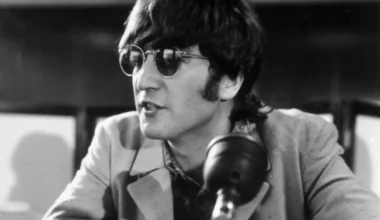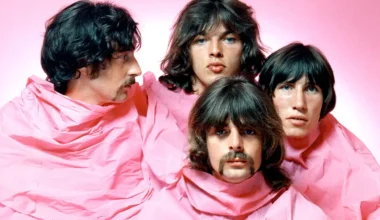When it comes to Morrissey, one thing is certain: he will always express his strong opinions. Aside from his strong political and social beliefs, Morrissey is perhaps the most outspoken critic of The Smiths’ discography and career. However, in this case, his point of view is difficult to argue against.
The Smiths’ career path is rather unusual. Despite cementing their place in history as one of Britain’s definitive bands, their active career lasted only about five years. Within that relatively short timeframe, the public engaged with the band in an unusual way. They were unsure of how to categorise and embrace a musical entity like them. The Smiths, standing on the verge of the post-punk wave, embodied a paradox. They were both more and less radio-friendly, with catchy riffs and intricately verbose lyrics that immersed listeners in a distinct sonic landscape.
The group has grown in popularity over the decades. Perhaps the strangest aspect of their career is that so many of their most popular songs never found a home upon release. The band released four studio albums, but their singles and compilations are what truly established their legacy. Some of their most popular songs, such as ‘How Soon Is Now?’, ‘Girl Afraid’, and ‘Asleep’, were relegated to B-sides because Rough Trade was hesitant to release the group’s wordy wonder as full-fledged singles.
Morrissey is most hurt by ‘Please, Please, Please, Let Me Get What I Want’. Where he describes the track’s handling as “sinful”.
The song is undeniably one of their most well-known now. Thanks in part to its inclusion in films such as Ferris Bueller’s Day Off and 500 Days of Summer, but also because of its poignant, hopeless message. But, in 1984, no one seemed to recognise the song’s potential or magic.
Originally only released as a B-side to ‘William, It Really Was Nothing’, it’s amusing that a song with such emotional power and intrigue came second to a comparatively silly little track about a marital argument. By 1987, Morrissey was still not over that decision, telling Melody Maker: “Hiding it away on a B-side was sinful.”
“I feel sad about it now although we did include it on Hatful Of Hollow by way of semi-repentance”. He went on to say. However, the treatment of the song serves as a microcosm for how Rough Trade and the entire music industry treated The Smiths. Industry executives appeared to completely misunderstand or underestimate the band. It leave them perplexed as to why or how some of the tracks they dismissed as second-best became the band’s most enduring hits.
That was certainly the case here, as Morrissey recalls: “When we first played it to Rough Trade, they kept asking, ‘Where’s the rest of the song’? Morrissey and his label rarely agreed on what made a good song. They couldn’t see the track’s power and preferred an easily digestible hit. “But to me, it’s like a very brief punch in the face,” he said. “Lengthening the song would, to my mind, have simply been explaining the blindingly obvious.”
We rarely find ourselves in complete agreement. But in the case of ‘Please, Please, Please, Let Me Get What I Want’, agreement is unavoidable. The beauty of the song lies in its deliberate, open-ended nature. It has the remarkable ability to express a wide range of emotions. It allowed listeners to project their own experiences onto the canvas. The universal theme of desperate longing and fervent hope for positive change makes the song emotionally powerful. The Smiths masterfully navigate the art of expression, using enough words to convey depth while avoiding overindulgence. In their signature style, The Smiths effortlessly find the elusive middle ground. A nuanced artistry that even their label may not have fully comprehended.








